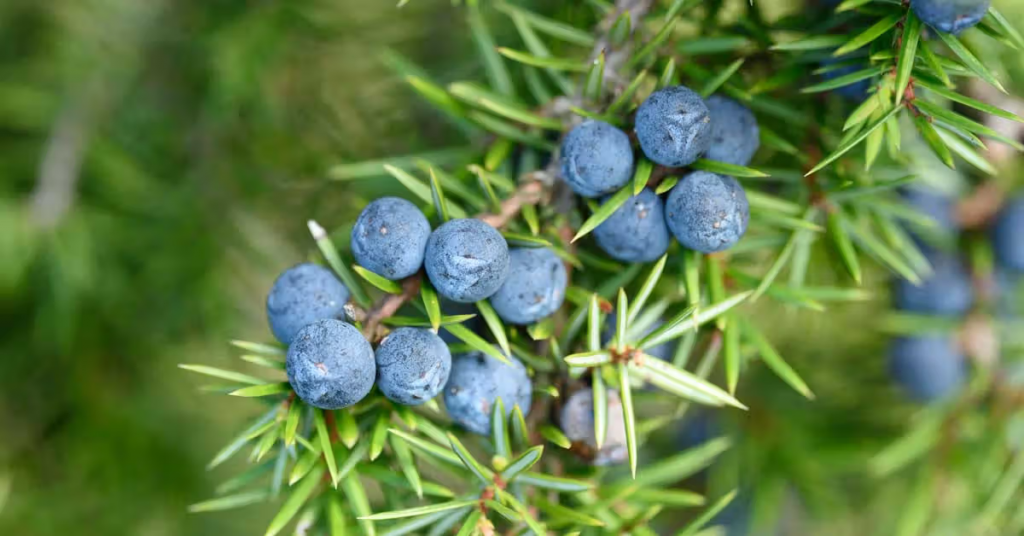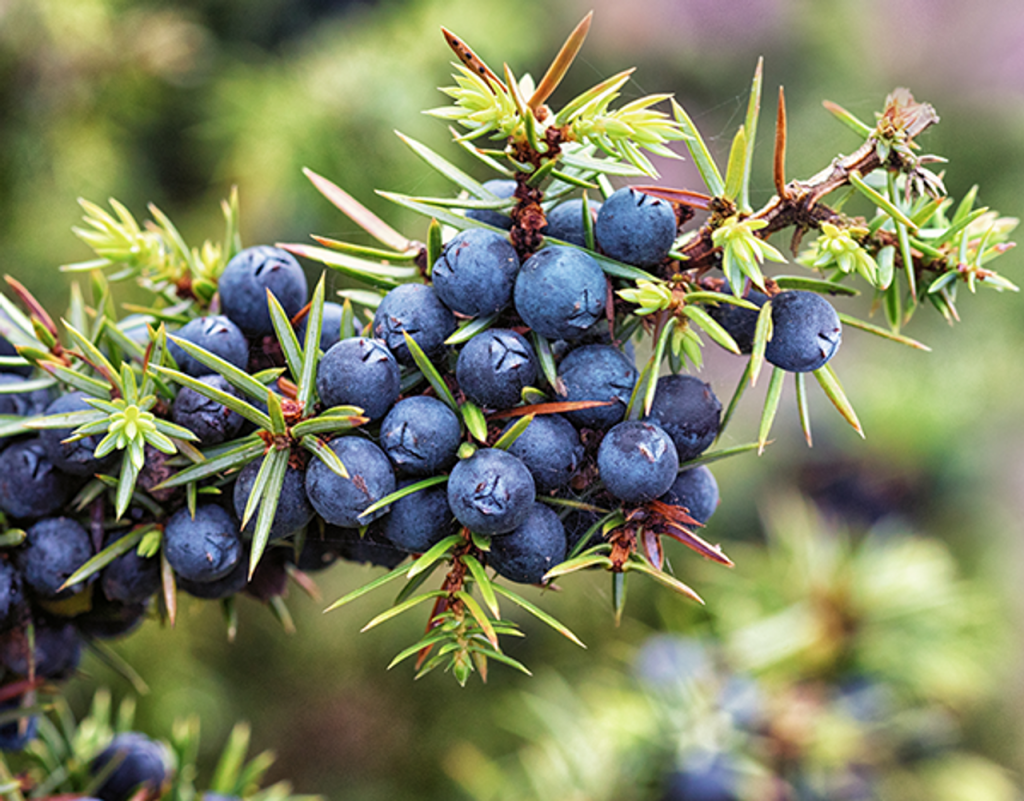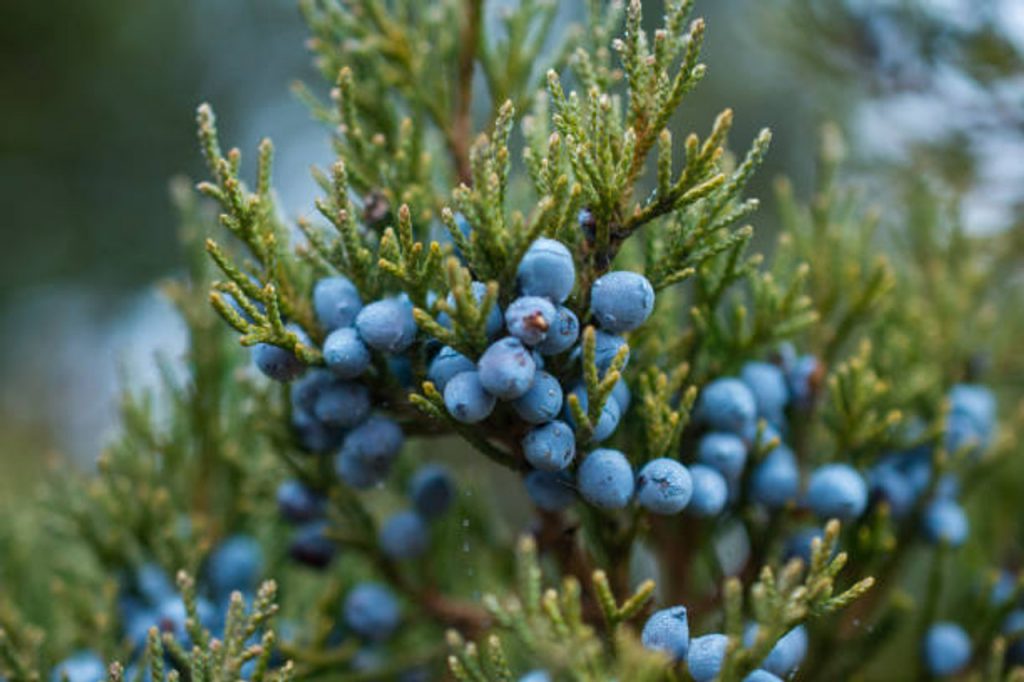For thousands of years, certain plants have stood out not just for their beauty but for their profound impact on human health and culture. One such plant is Juniper. From the icy mountains of Scandinavia to the deserts of North Africa, juniper has been celebrated in traditional medicine, rituals, and cuisine. Its distinctive berries are perhaps best known as the main flavoring ingredient in gin, but this resilient evergreen carries far more secrets than just its role in a cocktail glass.
Did you know that juniper berries were used by ancient Egyptians to treat infections, or that Greek athletes chewed them before competitions to boost endurance? Modern science now confirms that juniper contains powerful antioxidants, anti-inflammatory compounds, and essential oils that may support digestion, immunity, and even skin health. With over 60 species worldwide, this hardy plant continues to be a cornerstone in herbal remedies, natural therapies, and wellness traditions.
In this article, you’ll uncover why juniper is considered one of the most miraculous plants in the world, how it has been used across cultures, and the practical ways you can integrate it into your life safely and effectively.

What Makes Juniper So Special?
Juniper (genus Juniperus) is a coniferous plant belonging to the cypress family. Its berries—technically modified cones—are small, blue-purple, and packed with volatile oils like alpha-pinene and sabinene. These compounds give juniper its signature aroma and many of its health-supportive properties.
Historical Significance
- Ancient Egypt: Juniper was found in the tomb of Tutankhamun, likely used for medicinal and ceremonial purposes.
- Greek and Roman Empires: Athletes used it for stamina, while healers employed it as a digestive aid.
- Medieval Europe: Juniper smoke was believed to ward off plague and cleanse the air of “evil spirits.”
Modern Interest
Today, juniper is studied for its antioxidant and antimicrobial effects, and it continues to be used in herbal medicine, aromatherapy, and skincare.
8 Key Health Benefits of Juniper
1. Supports Digestive Health
Juniper berries stimulate digestive enzymes, which can help relieve bloating, indigestion, and flatulence. Herbal teas made with juniper have long been used after heavy meals.

2. Natural Detox Aid
Juniper acts as a diuretic, encouraging the body to flush out excess fluids and toxins. This property made it popular in detoxifying remedies across Europe and Asia.
3. Antioxidant Powerhouse
The high concentration of flavonoids and polyphenols helps neutralize free radicals, potentially protecting cells from oxidative damage.
4. Boosts Immune Function
Essential oils in juniper, particularly terpenes, exhibit antimicrobial and antibacterial activity. This makes it useful for warding off infections naturally.
5. Supports Skin Health
Juniper essential oil is often used in topical preparations for acne and minor skin irritations. Its antimicrobial qualities may help maintain clearer skin.

6. May Help Manage Blood Sugar
Some animal studies suggest juniper extracts could aid in regulating blood sugar, though more human research is needed.
7. Anti-Inflammatory Effects
Juniper has compounds that may reduce inflammation, making it a natural option for soothing joint discomfort or arthritis-related symptoms.
8. Aromatherapy & Stress Relief
The scent of juniper is grounding and calming. Diffused oil is commonly used in aromatherapy to ease anxiety and promote relaxation.
| Benefit | Active Component | Traditional Use | Modern Application |
|---|---|---|---|
| Digestive health | Terpenes, essential oils | Relieve indigestion | Herbal teas |
| Detox aid | Diuretic compounds | Flush toxins | Detox regimens |
| Antioxidant | Flavonoids | Longevity | Supplements, extracts |
| Immune boost | Antimicrobial terpenes | Treat infections | Essential oils |
| Skin health | Antibacterial oils | Clear complexion | Acne creams |
| Blood sugar balance | Plant extracts | Folk medicine | Early research |
| Anti-inflammatory | Polyphenols | Joint relief | Herbal remedies |
| Stress relief | Aromatic oils | Ritual cleansing | Aromatherapy |

How to Use Juniper Safely
Juniper Tea
A mild tea made from dried juniper berries can aid digestion. Use sparingly—about 1 teaspoon of berries per cup.
Essential Oil
Juniper essential oil should always be diluted with a carrier oil before applying to the skin. It can also be used in diffusers for stress relief.
Culinary Uses
Juniper berries add a sharp, pine-like flavor to meats, especially in European cuisine. They are often paired with venison, lamb, or sauerkraut.
Case Study Example
A wellness practitioner in Scandinavia shared that her clients who regularly used diluted juniper oil for massage reported reduced joint stiffness and an improved sense of calm. Similarly, traditional healers in the Mediterranean continue to use juniper berry infusions as part of seasonal detox rituals.

Safety Considerations
- Pregnant women should avoid juniper, as it may stimulate uterine contractions.
- Long-term, high-dose use can irritate the kidneys.
- Always consult a healthcare provider before using juniper if you have chronic conditions.
Cultural and Spiritual Uses of Juniper
Beyond physical health, juniper has played a symbolic role in many traditions:
- Tibetan Buddhism: Juniper is burned as incense to purify the air during ceremonies.
- Native American Traditions: Juniper branches are used in cleansing rituals.
- European Folklore: Juniper hung above doorways was thought to protect households from harm.
These practices reflect juniper’s reputation as both a healer of the body and a purifier of the spirit.
Practical Tips for Integrating Juniper into Your Life
- Brew a warm juniper tea after large meals to ease digestion.
- Add juniper berries to marinades for meats for a unique flavor.
- Use a juniper-infused oil for relaxing massages.
- Diffuse juniper essential oil to reduce stress and promote restful sleep.
- Blend with other herbs like rosemary or lavender for added benefits.
Conclusion
Juniper is far more than an evergreen shrub—it’s a plant with a deep history, potent natural compounds, and a wide range of benefits for the body and mind. From aiding digestion to calming the spirit, juniper has earned its place as one of the most miraculous plants in the world.
Frequently Asked Questions
- Can I consume juniper berries daily? Small amounts in food or tea are generally safe, but avoid excessive use.
- Is juniper oil safe for skin? Yes, when diluted, but avoid using near sensitive areas or open wounds.
- Does juniper cure diseases? No, it does not cure illness, but it may support overall wellness.
- Who should avoid juniper? Pregnant women, people with kidney issues, and those on certain medications should consult a doctor.
Disclaimer: This article is for informational purposes only and is not a substitute for professional medical advice. Always consult a qualified healthcare provider before starting any new herbal remedy.




